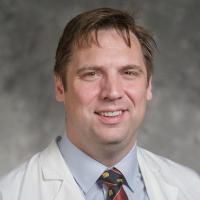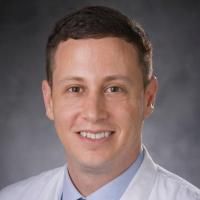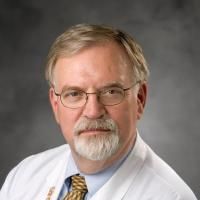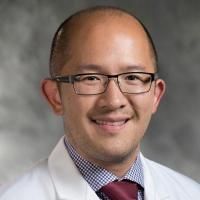Osteoimmunology: Interactions With the Immune System in Spinal Fusion.
Date
2023-12
Journal Title
Journal ISSN
Volume Title
Repository Usage Stats
views
downloads
Citation Stats
Abstract
Spinal fusion is important for the clinical success of patients undergoing surgery, and the immune system plays an increasingly recognized role. Osteoimmunology is the study of the interactions between the immune system and bone. Inflammation impacts the osteogenic, osteoconductive, and osteoinductive properties of bone grafts and substitutes and ultimately influences the success of spinal fusion. Macrophages have emerged as important cells for coordinating the immune response following spinal fusion surgery, and macrophage-derived cytokines impact each phase of bone graft healing. This review explores the cellular and molecular immune processes that regulate bone homeostasis and healing during spinal fusion.
Type
Department
Description
Provenance
Subjects
Citation
Permalink
Published Version (Please cite this version)
Publication Info
Bergin, Stephen M, Clifford L Crutcher, Carolyn Keeler, Brett Rocos, Michael M Haglund, H Michael Guo, Oren N Gottfried, William J Richardson, et al. (2023). Osteoimmunology: Interactions With the Immune System in Spinal Fusion. International journal of spine surgery, 17(S3). pp. S9–S17. 10.14444/8556 Retrieved from https://hdl.handle.net/10161/29678.
This is constructed from limited available data and may be imprecise. To cite this article, please review & use the official citation provided by the journal.
Collections
Scholars@Duke

Carolyn E Keeler
My clinical interests include the assessment, diagnosis, and nonsurgical treatment of spine disorders; fluoroscope-guided lumbar facet-joint injections; epidural steroid injections; sacroiliac joint injections; radio-frequency ablation; ultrasound-guided peripheral-joint injections; musculoskeletal medicine; medical acupuncture; performing arts and dance medicine; pregnancy-related back pain; spine wellness; and integrative approaches to spine pain.

Brett Rocos
I joined the team at Duke University Health from London, UK, where I was a Consultant Adult and Paediatric Spine Surgeon at Barts Health NHS Trust and Honorary Consultant Senior Lecturer at Queen Mary University of London. I completed my surgical training in in the South West of the UK and at the University of Toronto, and am fellowship trained in adult spine surgery, paediatric spine surgery, orthopaedic trauma surgery, research and healthcare management.
I am driven to support patients at every stage of their care, from clinic assessment, through surgery to discharge. Making sure that every person, adult, child, family or friend understands what’s wrong, helping them to choose the right treatment for them, and what the recovery will be like is an important priority.
My research activity focusses on finding effective new treatments for spinal disorders and bringing them to patients. Focusing on spinal deformity, I have led investigations in the UK, Canada and the USA, and I sit on the Global AO Knowledge Forum for Deformity and the Research Grants Committee at the Scoliosis Research Society. I have lectured in North America and Europe about the treatment of spine disorders for the Scoliosis Research Society, Global Spine Congress, AO Spine and Eurospine, and I have worked hard to produce research that improves the care for spine patients wherever they live. Lastly, I review for several orthopaedic journals and I am Deputy Editor of the Bone and Joint 360, a leading publication with a global readership.

Michael Martin Haglund
My clinical areas of expertise include spinal surgery, especially cervical spine surgery where I have performed almost 8,300 cervical spine procedures and recently was ranked the top cervical spine surgeon in the country by MPIRICA (an analytical company that reviews surgical outcomes). I believe the whole patient is important and we emphasize time with the patient and careful discussions regarding possible surgery. Our excellent results are due to a great team of physicians, nurses, CRNAs, and anesthesiologists. I also believe in the spiritual side in taking care of my patients. As a design surgeon we are developing better ways to treat cervical spine disease through innovative approaches to the cervical spine.
Through my Masters in Academic Medicine degree, I developed the Surgical Autonomy Program which is now used in 7 Neurosurgery Programs across the country and is an innovative way to teach, assess, and provide feedback to residents in the intraoperative environment. Over the last twelve years we have developed the first ever Division of Global Neurosurgery and Neurology (launched in 2014), where I serve as the Division Chief and the Division boasts over 100 members including faculty, graduate and medical students, undergraduate students and an outstanding staff of researchers, most located in the Duke Global Health Institute. The Division has published over 120 manuscripts between 2014 and 2023. We have primarily worked in building capacity, teaching, and collaborative research projects in Uganda. In 2019 I was invited to join the faculty at the Duke-Singapore Global Health Institute and we are working with the Singapore Neuroscience Department to develop outreach and increase capacity in Jaffna, Sri Lanka.

Oren N Gottfried
I specialize in the surgical management of all complex cervical, thoracic, lumbar, or sacral spinal diseases by using minimally invasive as well as standard approaches for arthritis or degenerative disease, deformity, tumors, and trauma. I have a special interest in the treatment of thoracolumbar deformities, occipital-cervical problems, and in helping patients with complex spinal issues from previously unsuccessful surgery or recurrent disease.I listen to my patients to understand their symptoms and experiences so I can provide them with the information and education they need to manage their disease. I make sure my patients understand their treatment options, and what will work best for their individual condition. I treat all my patients with care and concern – just as I would treat my family. I am available to address my patients' concerns before and after surgery. I aim to improve surgical outcomes for my patients and care of all spine patients with active research evaluating clinical and radiological results after spine surgery with multiple prospective databases. I am particularly interested in prevention of spinal deformity, infections, complications, and recurrent spinal disease. Also, I study whether patient specific variables including pelvic/sacral anatomy and sagittal spinal balance predict complications from spine surgery.

William James Richardson
- Current research includes investigation of biomechanical aspects of cervical injury with head impact. This involves cadaveric work with high-speed photography and load cells to ascertain the mechanism for spinal fractures.
2. An animal model is being used to evaluate the biomechanics of cervical laminectomy versus laminoplasty compared to the normal spine. A portion of the animals are developing myelopathy secondary to instability after the surgical procedure and this is being evaluated with MRI scanning as well as mechanical and radiographic testing.
3. Studies are being performed to develop an impedance pedicle probe to aid safe insertion of pedicular instrumentation in the lumbar spine. Ongoing studies are being performed to define the optimal frequency for the probe to yield the most sensitive and specific device. Hopefully this will lead to development of a device for human use. Studies will compare impedance probe to currently used EMG techniques to see if combing them will lead to greater sensitivity and specificity.
4. Studies are being completed on testing particular pull-out strength and doing a multi-varied analysis looking at size of the pedicle and bone density by two different techniques.
5. Current work is ongoing to develop an outcomes instrument and database to be used in the outpatient setting for patients with spinal complaints, both cervical and lumbar. The device will be used to evaluate clinical effectiveness for a variety of treatments for spinal conditions and to look at patient satisfaction issues.

Khoi Duc Than
I chose to pursue neurosurgery as a career because of my fascination with the human nervous system. In medical school, I developed a keen interest in the diseases that afflict the brain and spine and gravitated towards the only field where I could help treat these diseases with my own hands. I focus on disorders of the spine where my first goal is to help patients avoid surgery if at all possible. If surgery is needed, I treat patients using the most advanced minimally invasive techniques available in order to minimize pain, blood loss, and hospital stay, while maximizing recovery, neurologic function, and quality of life. In my free time, I enjoy spending time with my family and friends. I am an avid sports fan and love to eat. I try to stay physically fit by going to the gym and playing ice hockey.
Unless otherwise indicated, scholarly articles published by Duke faculty members are made available here with a CC-BY-NC (Creative Commons Attribution Non-Commercial) license, as enabled by the Duke Open Access Policy. If you wish to use the materials in ways not already permitted under CC-BY-NC, please consult the copyright owner. Other materials are made available here through the author’s grant of a non-exclusive license to make their work openly accessible.
